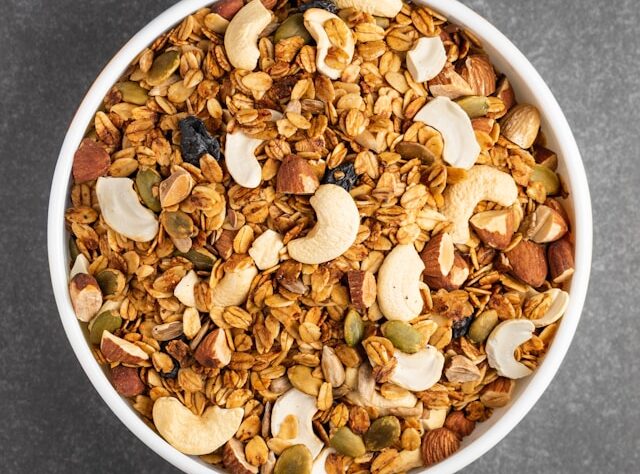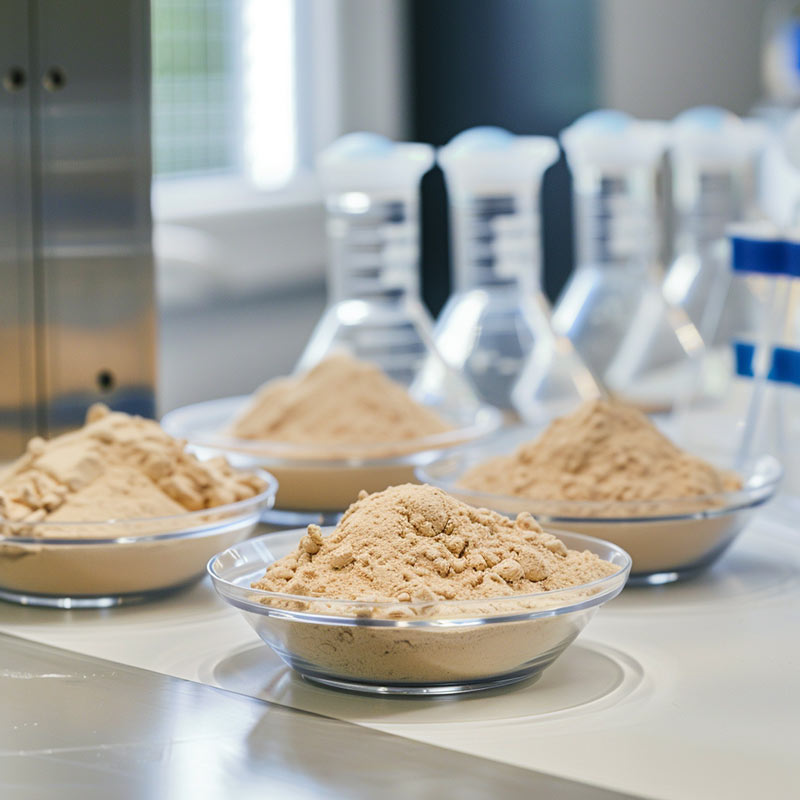Comeback After Pregnancy: An In-Depth Interview with Sophie Souwer
Sophie Souwer shares in an exclusive interview how she made an impressive comeback after pregnancy just six months after giving birth to her son. Discover the challenges she overcame and the valuable tips she offers to mothers who want to become active again after childbirth!
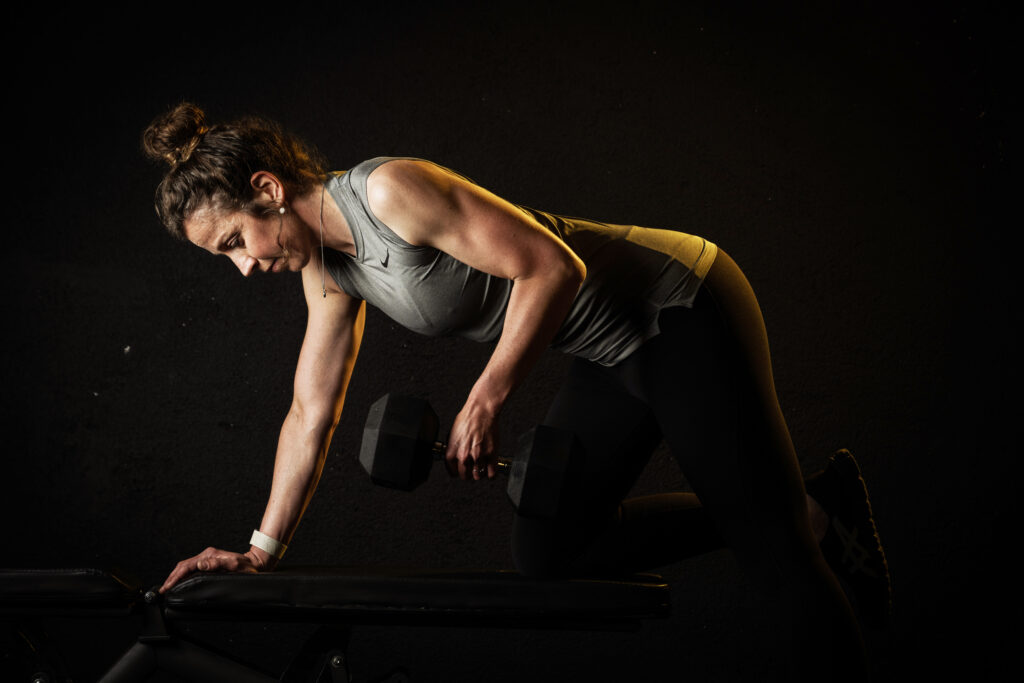
Sophie Souwer’s Personal Background
Sophie Souwer is one of the most successful rowers in the Netherlands. As a two-time Olympian and world champion in coastal rowing, she has celebrated impressive victories on the international stage. Her career has been defined by discipline, endurance, and a deep passion for the sport. However, beyond the challenges of elite competition, she faced an equally transformative experience: motherhood.
After giving birth to her son, Sophie had to rebuild her body and adapt her daily life—balancing the roles of mother, athlete, and midwife. Just six months later, she made an extraordinary comeback after pregnancy, winning the World Championship in coastal rowing. Her success is a testament to the power of dedication, patience, and balance in achieving ambitious goals.
We have been following Sophie’s return to professional sports on our social media channels. Now, in this exclusive interview, we bring together all the insights from her comeback after pregnancy. This conversation offers a comprehensive look at her journey—from the initial challenges after childbirth to her inspiring return to top-level competition.
In this interview, Sophie opens up about the highs and lows of this period. She shares her experiences of navigating the physical and mental challenges of both motherhood and professional sports. She also reveals how she manages to balance family life, her career, and her athletic ambitions, offering valuable advice for mothers looking to get back into fitness after giving birth.
Sophie’s Return to Sports
Sophie, almost a year after giving birth—how are you feeling today, both personally and athletically?
I feel really happy with where I am right now. Reorganizing my life was a challenge because I knew it would never be the same as before. But at the moment, things are going well—I’m working on my fitness, training once or twice a day, and gradually finding a rhythm that allows me to balance sports, work, and family life.
My comeback after pregnancy wasn’t easy, but I’ve learned to be patient with myself and to celebrate progress step by step. The biggest challenge has been managing all these different aspects at once. But so far, we’re doing a great job—my son is happy, and I have the energy to keep everything in balance.
You have had an incredible career as a rower. How has the sport shaped you as a person?
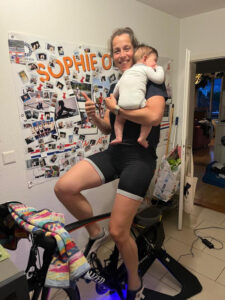 My career as a rower has impacted my life far beyond the world of sports. Competing in two Olympic Games was a massive challenge that required discipline, determination, and personal sacrifices. It taught me how to manage intense pressure and perform under stress, which has significantly boosted my confidence and self-belief.
My career as a rower has impacted my life far beyond the world of sports. Competing in two Olympic Games was a massive challenge that required discipline, determination, and personal sacrifices. It taught me how to manage intense pressure and perform under stress, which has significantly boosted my confidence and self-belief.
This mental strength has also helped me in my profession as a midwife. In moments of uncertainty or stress, I draw on my experiences from elite sports to stay composed and provide support to women during one of the most significant moments of their lives.
One of the biggest lessons rowing has taught me is how to handle setbacks. In competitive sports, things don’t always go as planned—you don’t always win, and you have to learn to adapt, stay resilient, and push forward. This mindset helped me tremendously during pregnancy and in my comeback after pregnancy.
My Comeback After Pregnancy: Challenges and Success
How did you experience the break from professional sports during pregnancy? What challenges did you face?
Taking a break from competitive sports was not easy for me. Before my pregnancy, I was in top physical condition, but after six or seven weeks, I started to notice a gradual decline in my energy levels.
This was a mentally tough phase because you cannot fully prepare for how your body will react. Some women remain energetic throughout their pregnancy, while others feel fatigued much earlier. I had to learn to accept that my athletic performance would be temporarily limited.
However, after giving birth, I found a new source of motivation. My goal was to regain my strength and return to my previous fitness level. This shift in perspective helped me see my comeback after pregnancy as a process rather than a race.
Did you stay active during pregnancy? What kind of training did you do?
Yes, I stayed active, but I had to adjust my expectations. I continued training in cycling and strength exercises, but I had to stop running earlier than I had anticipated. As my belly grew, my training sessions became less intense, but I made a conscious effort to keep my body moving. This played a crucial role in my postpartum recovery. Activities like cycling, walking, strength training, and Pilateswere ideal ways to stay fit without putting too much strain on my body.
How did you manage to return to such a high level of performance just six months after giving birth?
The decision to compete in the World Championship was spontaneous—a fun idea that I pursued with a group of friends. But in the end, it turned out to be a major success!
To prepare for the competition, I focused on structured, high-quality training. It wasn’t about how often or how long I trained but rather about how effective each session was. I incorporated high-intensity interval training (HIIT) into my routine, which allowed me to rebuild strength and endurance in a short period. This strategy played a key role in my fast and efficient comeback after pregnancy.
💡 Tip: Want to learn more about HIIT training? Check out our previous blog post.
Balancing Motherhood, Training, and Work
How do you manage your training schedule while balancing life with a baby?
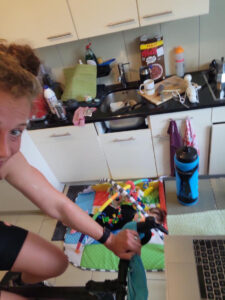 My top priority is avoiding stress and consciously enjoying the time I spend with my son. That’s why I train as efficiently as possible and remain flexible. If a workout doesn’t go as planned, I don’t worry—I simply try again the next day.
My top priority is avoiding stress and consciously enjoying the time I spend with my son. That’s why I train as efficiently as possible and remain flexible. If a workout doesn’t go as planned, I don’t worry—I simply try again the next day.
Getting enough sleep is crucial for my recovery, especially during breastfeeding. My sleep at night is often irregular and interrupted, so I sleep whenever I can. When I’m not working, I sleep alongside my son, which has worked very well for me.
Regular meals and sufficient hydration are just as important. I follow a high-protein diet to support my recovery and muscle growth. Increasing my protein intake has also helped me lose weight, a strategy that has proven to be very effective. Staying hydrated with plenty of water and fluids is another key factor in the recovery process.
When it comes to training, my focus is on quality over quantity, as I don’t always have time for long sessions. Whenever I train, I give my best effort—physically and mentally—because I truly enjoy it. I push myself when I have the energy to do so. On days when I feel tired or mentally drained, but still want to move, I don’t put pressure on myself. Instead, I train without expectations, making sure it feels good.
This balance has been essential in making my comeback after pregnancy a positive experience.
Has your training approach changed since becoming a mother?
Definitely. I’ve learned to use my time wisely and train smarter. Every moment counts—whether it’s training, working, or being with my family. Instead of following a rigid routine, I now listen to my body. On high-energy days, I push myself harder. On days when I feel drained, I allow myself to train at a lower intensity without guilt.
Where do you find the energy to successfully balance your roles as a mother, athlete, and midwife?
I have always had a lot of energy and discipline. My goal is to feel good in my body, pursue my passion for sports, and be the best mother and midwife I can be. These small but meaningful goals motivate me every day. Even when challenges arise, looking at my happy son reminds me that all the effort is worth it.
Did you ever experience moments of doubt—either as a mother or as an athlete? How did you overcome them?
Absolutely! Everyone has doubts from time to time. You question whether you are doing enough for your child or if you are taking on too much. I occasionally felt guilty for training while someone else was watching my son.
But I have learned that self-care is essential. When I take care of myself, I can give even more to my family. My son is a happy child, and that reassures me that we are on the right path as a family.
What advice would you give to mothers looking to return to sports after pregnancy?
Set small, realistic goals and start slowly! Even if it’s just ten minutes of Pilates or a short walk with the stroller—every step counts. Listen to your body and progress at your own pace. The most important thing is to find a sport or activity that you enjoy and that fits into your daily routine.
Don’t compare yourself to others—focus on your own progress. It’s not about immediately returning to your previous performance level but about gradually becoming stronger and feeling comfortable in your body again. If you have a tough day, don’t get discouraged—every day is different, and that’s completely okay.
Don’t expect every day to be perfect, but give yourself the opportunity to make movement a positive part of your life again. Sometimes, it’s the small, consistent steps that make the biggest difference in the long run. Enjoy the process and celebrate your progress—no matter how small it may seem!
Thank you, Sophie! The NoDoubt team wishes you continued success!
📲 Check out our Instagram page to stay updated on Sophie Souwer and our other ambassadors!
